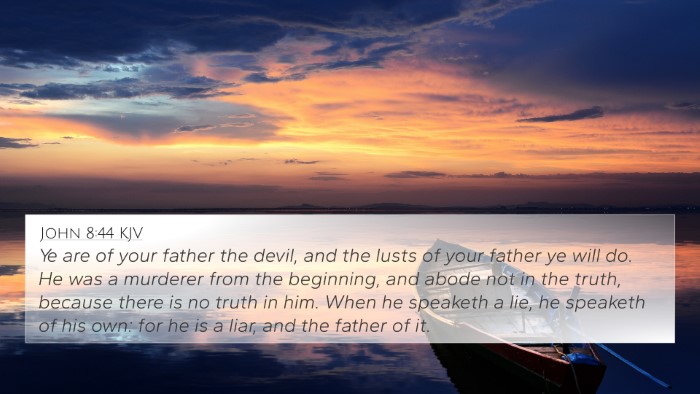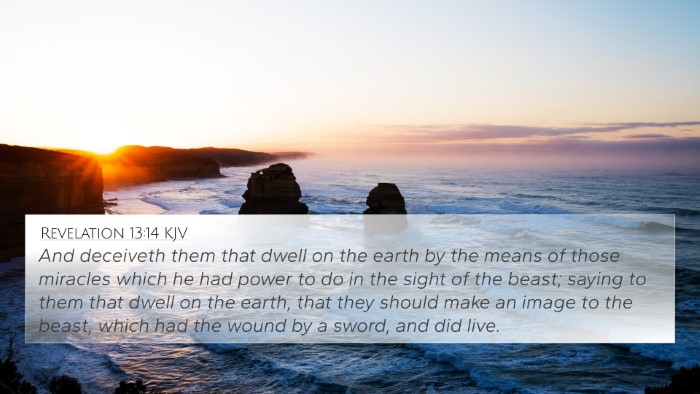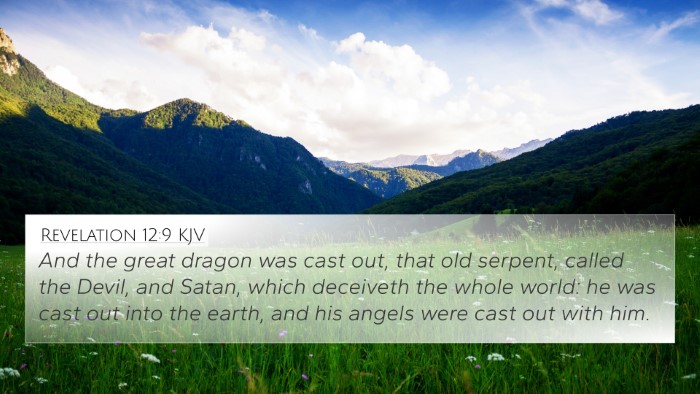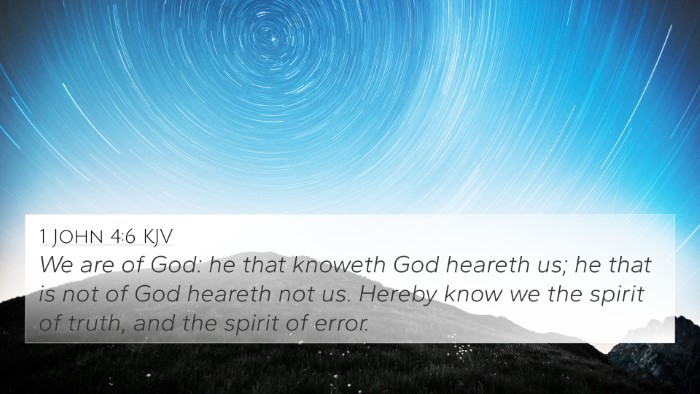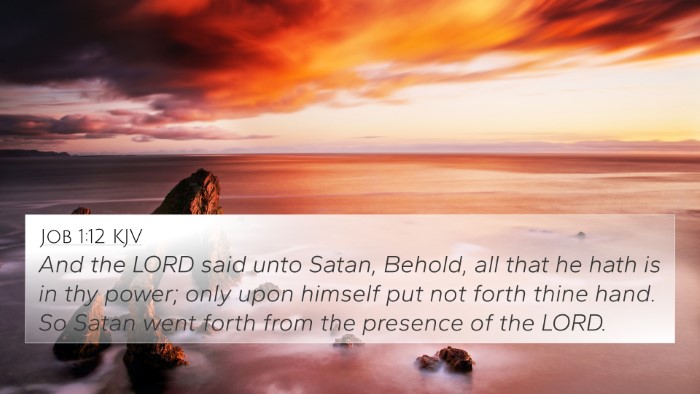Understanding 2 Chronicles 18:21
In 2 Chronicles 18:21, we find a crucial moment in the narrative involving the prophet Micaiah, King Ahab, and King Jehoshaphat. This verse highlights the importance of speaking truth in the midst of deception and the dire consequences of seeking counsel that aligns with one's desires rather than God's will. The verse states, "And he said, I will go out, and be a lying spirit in the mouth of all his prophets."
This moment serves as a significant example within Scripture, illustrating how false prophecies can lead to disastrous outcomes and the necessity of discerning truth in spiritual matters. In our exploration, we will delve into the meanings presented in various public domain commentaries, shedding light on the implications of this verse and its connections to other Biblical texts.
Commentary Insights
Matthew Henry:
Matthew Henry emphasizes the role of the lying spirit as a Divine judgment against King Ahab for his persistent wickedness. Ahab's willingness to listen to deceptive prophets demonstrates his rejection of the truth spoken by God. This verse, in Henry's view, illustrates a spiritual contrast between those who seek the genuine counsel of God and those who indulge in falsehood for personal gain.
Albert Barnes:
Albert Barnes notes that such a spirit was permitted by God to turn the hearts of Ahab’s prophets toward lies. Barnes further explains that this highlights God's sovereignty even in the midst of human disobedience. The interpretation emphasizes the importance of aligning one’s heart with divine truth, as failing to do so may result in grievous consequences, as evidenced by Ahab’s eventual downfall.
Adam Clarke:
Adam Clarke points out the significance of the lying spirit's undertaking, considering the moral implications of deception among those who claim to speak for God. Clarke discusses the ethical responsibilities of leaders and prophets to uphold truth, underscoring how spiritual leaders must be vigilant against misguidance. Clarke's insights offer a challenging perspective on the responsibilities of modern believers to discern truth in contemporary teachings.
Key Themes in 2 Chronicles 18:21
- Divine Sovereignty: The text illustrates how God, in His sovereignty, can use even lying spirits to fulfill His purposes, reminding believers of the vast and mysterious workings of divine providence.
- Consequences of Seeking False Counsel: Ahab’s seeking of favorable counsel, rather than God's truth, serves as a cautionary tale about the dangers of surrounding oneself with voices that affirm one’s own desires.
- Importance of Truth in Leadership: The verse highlights the critical need for leaders and prophets to be grounded in truth, steering clear of deception for the sake of validation.
- Judgment upon Evil: The sending of a lying spirit can also be seen as God's judgment on Ahab’s long-standing rebellion against Him and His prophets.
Cross-References to 2 Chronicles 18:21
To understand the context and implications of 2 Chronicles 18:21, one can explore a variety of cross-references that connect themes of truth, deception, and divine judgment throughout the Scriptures. Here are several notable cross-references:
- 1 Kings 22:20-23: This passage parallels 2 Chronicles 18:21 and describes God commissioning a lying spirit to deceive King Ahab's prophets.
- Jeremiah 14:14: This verse addresses false prophets who proclaim peace when God has not sent them, aligning with Ahab's quest for false assurance.
- Ezekiel 14:9: A strong warning about God allowing deception among the unfaithful, similar to Ahab's experience.
- Matthew 7:15: Jesus warns about false prophets and the need to discern truth from lies, echoing the themes of spiritual vigilance.
- 2 Thessalonians 2:11-12: A New Testament discussion on God sending powerful delusions to those who reject the truth, resonating with Ahab's fate.
- Romans 1:25: Describes how people exchange the truth for a lie, reinforcing the dangers of forsaking divine wisdom.
- Proverbs 12:22: Speaks of the Lord's delight in those who deal truthfully, contrasting Ahab's deceitful practices.
- 2 Peter 2:1: Discusses false teachers who will secretly introduce destructive heresies, akin to Ahab's scenario.
- John 8:44: Jesus calls Satan the father of lies, emphasizing the spiritual battle against deception.
- Galatians 1:6-9: Paul's warning against turning to a different gospel aligns with the theme of rejecting divine truth.
Final Thoughts
2 Chronicles 18:21 serves as a profound reminder of the importance of seeking God’s truth in our lives and the perils of aligning ourselves with misguidance. The insights from various commentaries enhance our understanding of the text’s implications for contemporary faith practices. By cross-referencing this verse with other Biblical texts, believers can shed light on the enduring themes of truth, spiritual leadership, and divine judgment. Consequently, this verse not only serves as a historical narrative but as a timeless lesson on the nature of God's truth in a world of spiritual deception.



